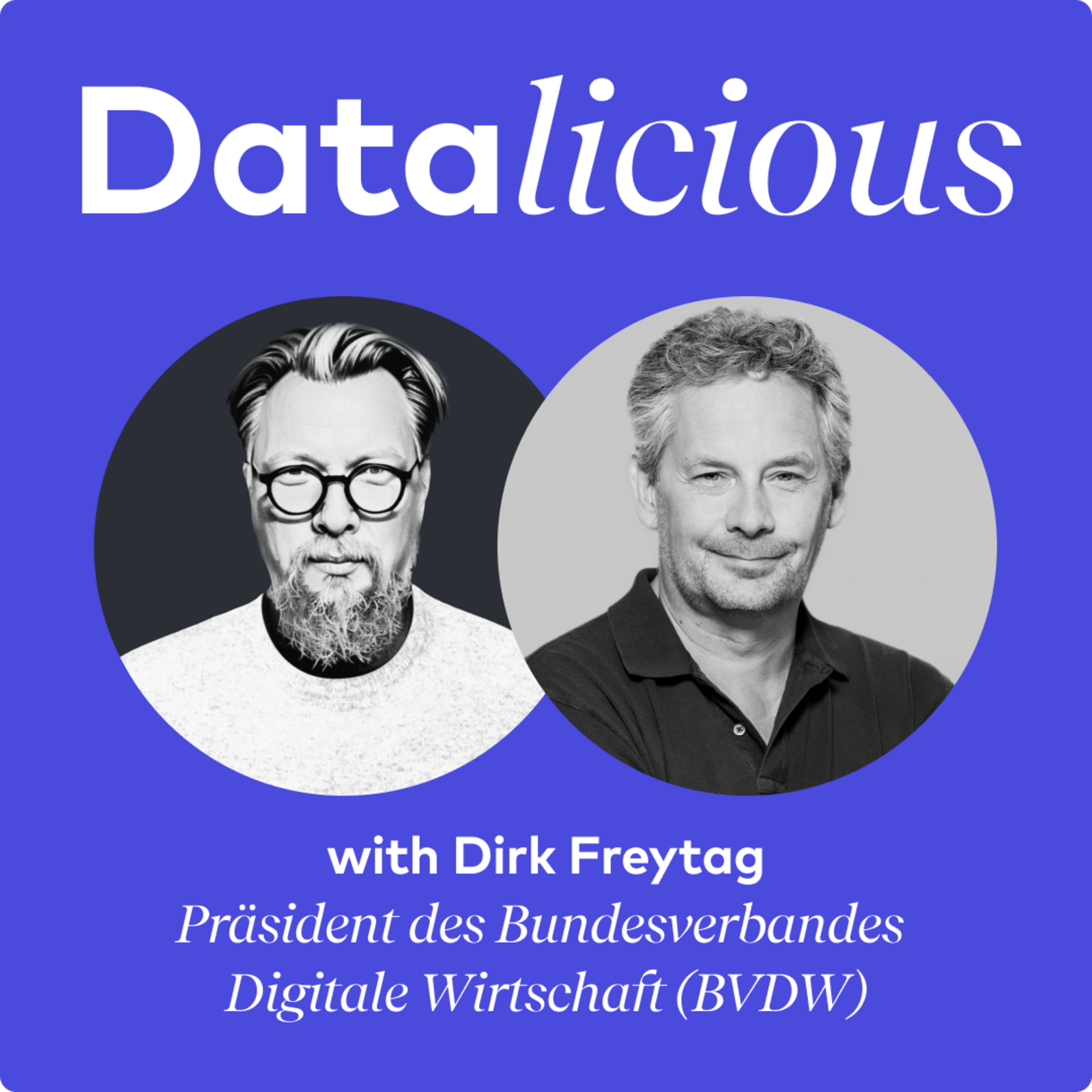In this episode of Datalicious, our guest is Dirk Freytag, President of the German Association for the Digital Economy (BVDW). Following the Bundestag election, he and Carsten Sander talk about the current state of digitalization in Germany and Europe, the associated challenges, and possible solutions.
Topics discussed:
- Digital transformation: What challenges must Germany overcome in order to remain digitally competitive?
- Data privacy vs. data use: How can we use data to drive growth while maintaining privacy?
- Fostering innovation: What regulatory steps must be taken now to promote innovation?
- Looking ahead: How might Germany digitally transform in the near future?
Takeaways from this episode:
- Digitalization hardly played a role in campaigning, although it decides elections: While migration and other issues dominated, campaigns ignored the impact of data and algorithms on political opinion and voting decisions.
- Germany has a strong foundation – but makes no use of it: We have innovative ideas and talents, but often lack the courage to think big and act decisively.
- Data as the key to our economic future: Instead of just talking about data protection, we need an opportunity-oriented data culture – less aversion to risks, more focus on active use.
- Europe must strengthen its digital sovereignty: Instead of merely regulating US and Chinese platforms, Europe should establish its own digital champions.
- Germany must learn from Estonia & Scandinavia: In Estonia, you receive automated reminders when travel documents are about to expire. In Germany, you only find out at the airport. Digitalization means efficiency and better service – we need both in Germany.
- Germany needs a bolder start-up mindset: In the USA, investors support growth and innovation at an early stage. German investors, on the other hand, think too small and are too cautious.
- Regulation must become leaner: We have lots of laws, a tangle of unclear legislation. This makes innovation difficult. Germany needs less bureaucracy and quicker decisions.
- Mindset shift is a key lever for progress: Companies, politicians, and society at large must come to view digitalization as an opportunity – not as a problem.
Chapters:
00:00 Introducing the “digital turning point”
03:32 Challenges to Germany’s digital economy
05:54 Positive changes and digital milestones
09:00 Comparison with Scandinavian countries
11:47 Market size and European collaboration
14:55 Mindset and innovation culture in Germany
17:51 The future of digital policy in Germany
21:01 Cooperation between science and industry
22:46 Scaling and production costs
27:25 Research landscape and commercial use
31:25 Data-driven economy and opportunities
37:01 Future forecast and digital transformation
